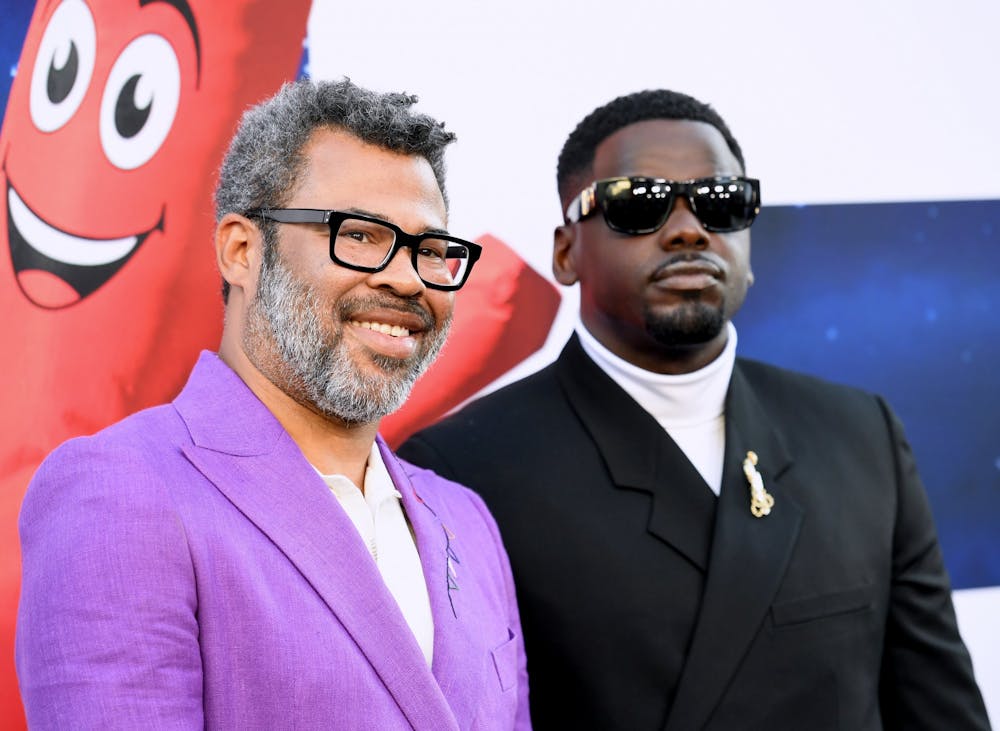Jordan Peele’s “Nope” was one of my most anticipated films of the year. Peele’s previous films, “Get Out” and “Us,” are two of my favorite horror films of all time. They’re expertly crafted works that perfectly balance genuine genre thrills with relevant social commentary.
With each new entry in the JPCU (Jordan Peele Cinematic Universe), it seems as though Peele expands his filmmaking repertoire. It happened when he moved from the relatively contained, psychological horror of “Get Out” to “Us,” a film with complex world-building and abstract themes. In “Nope” he continues to explore philosophical themes while also pushing the boundaries of genre and scale.
Without a doubt, “Nope” is Peele’s most ambitious film yet. The film follows Emerald and OJ Haywood (Keke Palmer and Daniel Kaluuya), a pair of siblings who run a California horse ranch together after the mysterious death of their father. When they witness a strange occurrence on the ranch, they employ the help of Angel (Brandon Perea), a conspiracy theorist tech employee, and Antlers (Michael Wincott), a gruff cinematographer, in order to capture the phenomenon on camera.
It’s no surprise that Peele is being called this generation’s Alfred Hitchcock, considering the way he cultivates tension in “Nope.” His directing is razor-sharp and incredibly focused; every set piece is dripping in dread. This is also due to Hoyte Van Hoytema’s gorgeous cinematography and the intricate soundscape that the sound design team crafted. Overall, “Nope” does for the sky what “Jaws” did for the ocean.
As was expected in a Jordan Peele film, the performances are incredible. Palmer is a stand-out, and her screen presence is electric. She’s easily able to garner laughs from viewers but also delivers in the more emotionally charged scenes.
Kaluuya, who received an Oscar nomination for his role in “Get Out,” proves again that he and Peele are a match made in heaven. Even though his character is more timid and reserved than Palmer’s, Kaluuya demands your attention and empathy in every scene.
But, it’s Steven Yeun’s performance as Ricky ‘Jupe’ Park, a former child star turned Western-themed amusement park owner, that sticks with you after the credits roll. His character is charismatic, yet haunting, and his arc is the center of some of the film’s main themes.
As I mentioned, “Nope” is a film about society’s fascination with spectacle — how we chase things that are scary, intriguing and awe-inspiring, despite their inability to be contained. The film both critiques and celebrates the art of spectacle by observing how different types of people react to something terrifying and beautiful.
Jupe tries to reign it in and control it for personal reasons that stem from a traumatic experience he had as a child, while the Haywoods immediately try to capture the phenomenon on camera for monetary gain. But, as the film progresses, they become less focused on fame and fortune and instead turn to preserving their family name. They refuse to be forgotten — like their third great grandfather, the black jockey who rode the horse in the very first series of moving pictures.
“Nope” is an incredibly dense film that tackles many subjects: self-preservation, exploitation and the commodification of trauma, just to name a few. It also offers biting commentary on the film industry itself, and how the desire for fame can be the cause of one’s self-destruction.
Given that this is Peele’s most experimental film yet, it won’t be for everyone. Personally, I found this film extremely alluring, much like the actual spectacle in the film. There’s an addictive aspect to it that demands your gaze, practically forcing you to gawk at the cinematic feat being presented.
I encourage you to see “Nope” on the biggest screen you can, and to surrender yourself to the spectacle.




